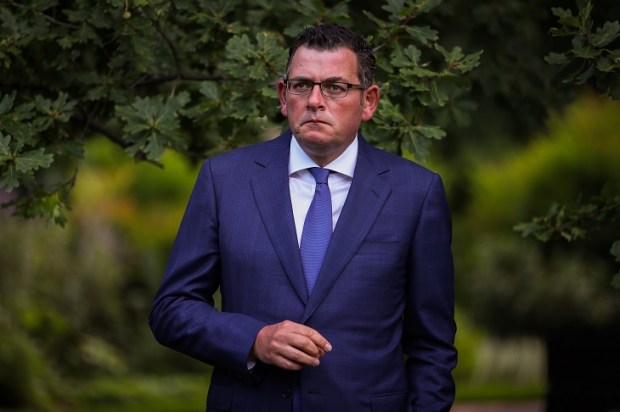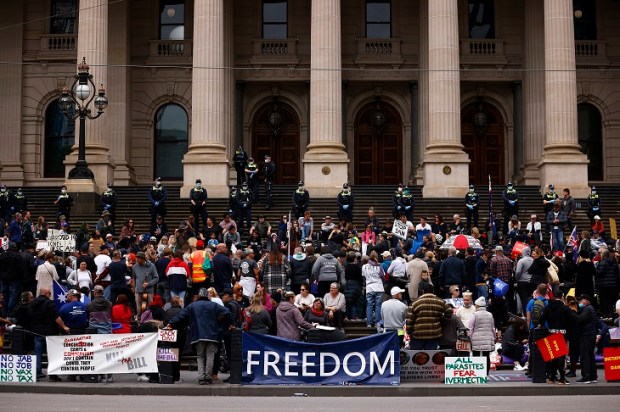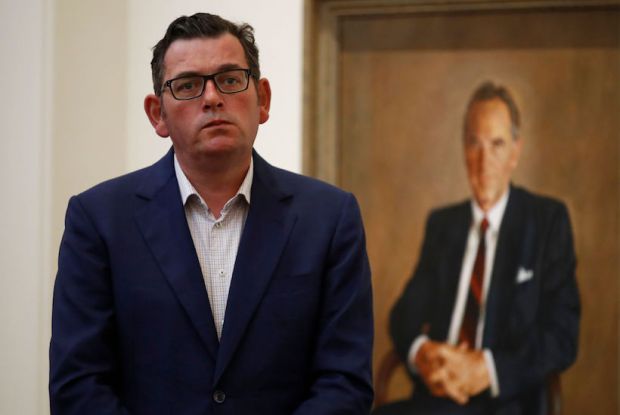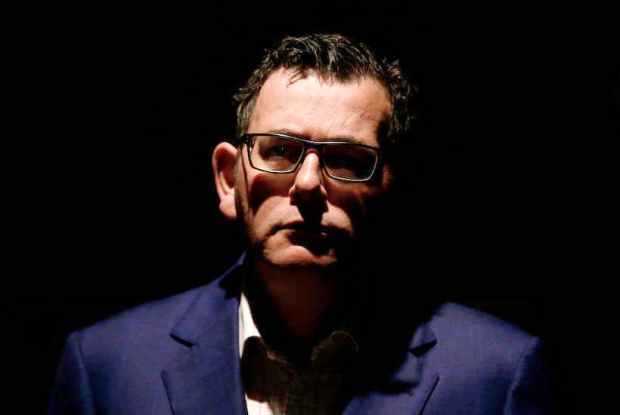The 10,912 Victorians who signed a petition to retain the recital of the Lord’s Prayer in our state Parliament each sitting day should feel well pleased: Victoria’s Labor government has acknowledged the overwhelming community sentiment against their intention to scrap the practice, and comprehensively back-flipped.
I am possibly one of the least religious members in the Parliament, but I will defend to the hilt the retention of the Lord’s Prayer, of freedom of religion along with the other important freedoms of speech and association. All of which are under threat when socialists and communists are in charge.
A society with diverse faiths is like a society with many languages: you don’t remove English as the official language of Australia just because people speak other languages too.
Since 1857, the Lord’s Prayer has been part of the formal processes of both Houses of the Victorian Parliament, but my support for it goes way beyond tradition for tradition’s sake.
In Australia’s first steps towards federation, the Westminster system was adopted, and a constitutional monarchy was established. But the history of prayer before parliamentary sittings is much older: it began in England during the reign of Elizabeth I in 1558, and was formalised by the first Stuart King, James I in 1567.
The present recitation reminds us too of a formative period in democracy, with the victory of constitutional monarchy over republicanism as well as the divine-right monarchy it displaced. After Parliament ordered the execution of King Charles I in 1649, dispute over how an all-powerful Parliament ought to govern and precisely what gave it this right to rule, created factional splits and chaos. The consequent English Civil War cost up to 200,000 lives, some 4.5 per cent of the population and as great a proportional loss as Britain suffered in the first world war.
After 11 years of republican rule in England, the monarchy was restored in 1660 when Parliament invited King Charles II to take the throne. The Westminster system was established under the Stuart restoration, and the current tradition of Parliamentary prayers began.
When Australia established its first government, we took advantage of the hard-earned wisdom of the Westminster system. And that is why we say the Lord’s Prayer each sitting day. Prayers offer a chance for reflection, as well as a reminder of the historical struggle which gave rise to the stable, strong and fortunate society we enjoy today in Victoria.
Opposition to the Lord’s Prayer is not just anti-faith, it is part of a wider, historically illiterate attack on the principles of Western Civilisation. And, just like England’s republican Parliaments of the 1650s, those seeking to ban the Lord’s Prayer cannot agree what should replace the practice.
Ultimately, history shows us that the evolution of tradition provides a sounder, stabler foundation for society than the radicalism of ideologues and the societal surgery they demand.
I am sure the anti-tradition, history-cancelling zealots won’t stop at the Lord’s Prayer: the portraits of royals in Queen’s Hall might soon be in the basement. The Parliament’s mace reflects the authority of the Speaker and the House, but should we melt it down because the coats of arms offend anti-monarchists? Similarly, there is historical precedent with the red and green colours in the chambers. Red in the Council, like the House of Lords symbolises nobility and royalty, and green was a commoner colour being a cheaper dye. Should we re-upholster the chambers now in rainbow vegan leather?
We need to remember that our constitutional settlement is not just about the basic mechanics of government – we have inherited a living tradition, not a rule book.
Each one of these small elements might seem insignificant on its own, but taken together they form a rich tapestry woven by the experience of history, encompassing mistakes made, lessons learned and the wisdom of our predecessors. We don’t know which thread, if pulled, might cause the entire fabric to unravel. Every action of government seems to create unintended consequences, and the catastrophe of revolutions reinforces the danger. There is a real arrogance in those who dismiss tradition, believing they can design a better system simply from their own overpowering virtue and intellect.
History and the accumulated wisdom of past generations has much to teach us. When all that costs us is a moment of quiet reflection at the beginning of a busy day, it’s a price I’m willing to pay.

























